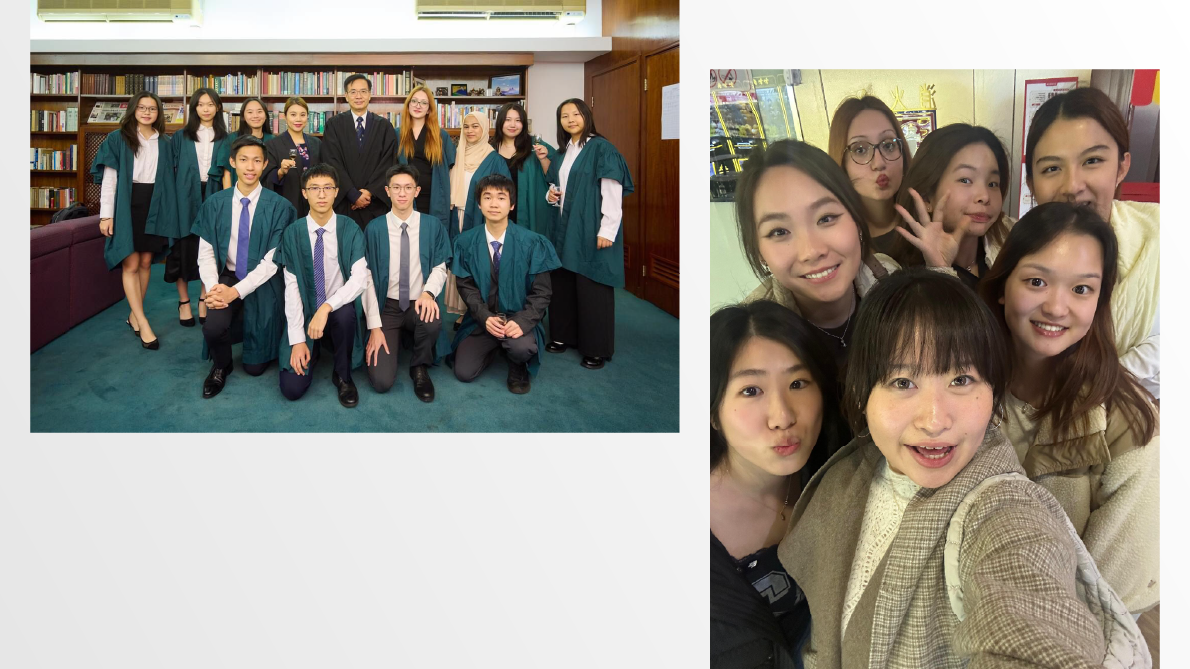Studying Genetics Is Like Studying the Essence of Life Itself
Asmin Rana Avsar (Science Master Class)

“If there is no path, a path must be made,” is an axiom that Asmin Rana Avsar’s father often said to her when she was young. As a child growing up, she didn’t understand what her mother, a doctor, did when she visited the hospital or what her father, a molecular biologist, did in his laboratory – but she thought it was very cool. Growing up in an environment where science was constantly discussed shaped her interests and led her to choose her own path, which has brought her to HKU. The 18-year-old native of Turkey is currently a first-year student in the Science Master Class, majoring in Molecular Biology and Biotechnology (Intensive) and was awarded the full tuition Belt and Road (Other Countries) scholarship.
Her interest in science really took root in middle school, when a project in a science fair about DNA sparked a genuine curiosity in her about the principles of biology and genetics. In 10th Grade, she was invited to attend the Drexel University ‘Brain & Technology Convergence: Your Brain on the Metaverse’ course. This would be the start of a journey of discovery and learning about brain imaging techniques, particularly functional near-infrared spectroscopy (fNIRS) and how it can be used to measure brain activity non-invasively, providing insights into cognitive functions and how these techniques can be applied to emerging fields like virtual reality and the metaverse.
Her interest also includes plasmids, which are small circular DNA molecules found in bacteria and widely used in biotechnology for drug production. Current methods used to isolate pDNA are toxic and expensive, hindering research and treatments. “To solve this, my team and I developed the project ‘Development of New Methods for Pure Plasmid DNA Isolation without Using Commercial Kits’,” she says. “We created two non-toxic and cheap methods for isolating high-purity plasmids. Initially, we considered four methods, but supply issues limited us to two. This experience taught me to work as a team to solve problems, develop alternatives, and strive for better outcomes despite challenges.”
This project solidified her commitment to a career in molecular biology and biotechnology. “It inspired me to continue seeking out innovative solutions to complex problems, and I now approach my future work with a heightened sense of purpose and determination. In essence, the ups and downs of this journey have shaped not only my skills as a scientist but also my identity and values as an individual committed to advancing knowledge for the greater good,” she says.
At HKU, she is particularly enthusiastic about the ‘Lead for Life’ programme. “It’s an incredible leadership growth initiative at HKU that empowers students to cultivate their innate leadership skills through meaningful interactions with peers and mentors,” she says animatedly. The programme is structured around a blend of individual and group activities designed to foster personal development and teamwork, as well as leadership activities that allow students to explore the qualities of effective leaders. “For instance, we participate in workshops and discussions that challenge our perspectives and help us understand the nuances of leadership in different contexts,” she notes. “I’m excited about the opportunity to collaborate with diverse groups, as these experiences will help me develop a more nuanced understanding of solidarity, empathy, and social responsibility as essential traits of a leader. Overall, the ‘Lead for Life’ programme is setting a strong foundation for my growth as a leader, and I look forward to all the opportunities that lie ahead to test and expand my skills in a supportive environment.”
She is also delighted with being a resident at St. John’s College. “Being a St. Johnian has allowed me to connect deeply with the community. I cherish the late-night discussions with friends, sharing ideas and cultures, which have broadened my perspective,” she says. HKU’s cultural diversity has also become apparent as she lives with and learns from other hallmates. Recalling a potluck dinner that included Asmin and residents from South Africa, India and China, she observes that, “We bonded over our shared experiences living in Hong Kong, navigating life as international students. That experience reinforced the beauty of multiculturalism and how food can bring people together. It was a wonderful reminder that despite our different backgrounds, we could create lasting memories and friendships through our shared experiences.”
Looking ahead, her future plan is to conduct research in the areas of genetic engineering. “In addition to my research aspirations, I am passionate about educating the next generation of scientists,” she says. “I hope to teach at the university level, inspiring students to pursue their own research interests. Therefore, my intention is to pursue a PhD and begin my scientific research.”
Even at this stage in her scientific journey, she believes that her life’s mission is to unravel the mysteries of the genetic material in the first cell and to experimentally investigate the subsequent changes in genetic formation in descendant cells. “This quest fascinates me because understanding cells and their genetic materials is crucial for comprehending the essence of life itself. By exploring these foundational aspects, I aim to contribute to advancements in biotechnology and genetic engineering, ultimately enhancing our ability to address significant biological challenges,” she says, adding, “This journey is not just academic; it’s a profound commitment to advancing scientific knowledge and inspiring future generations of researchers.”


